Does your furry child trouble you every night? Do they avoid your commands? Are you struggling with potty training? Here are some potty training tips for puppies which might help you better train your puppy.
Well, according to a survey it takes at least four to six months to potty train your pup successfully. It does seem like a long time but it’s all worth it. But you won’t need to wait that long because we have made a list that will help you fast-forward your potty training process. Before we dive into the list, let’s understand your furry friend first.
Keep this in mind before potty training your dog
Puppies are naive and slow learners. It’s best to be patient with them. Every pup is different and so the time they take to get potty trained completely varies according to the dog’s breed, age, attitude, and surrounding environment. Puppies usually have a small bladder and they can’t control their impulses, that’s the utmost reason why accidents occur in the first place.
You may wonder “How to understand my puppy’s excretion cycle?”. Well, no need to worry because we have the perfect puppy equation for you.
Puppy peeing time = Age of the puppy in months + 1 hour
You can use this simple equation to understand your pup’s cycle. But there’s one more thing that should be kept in mind. This equation does not work for dogs more than 9 months old.
“Why?” Well, there’s no such animal that can hold its pee/poop for more than 10 hours. So if your pup is 5 months old then you need to take them out to pee after every 5-6 hours.
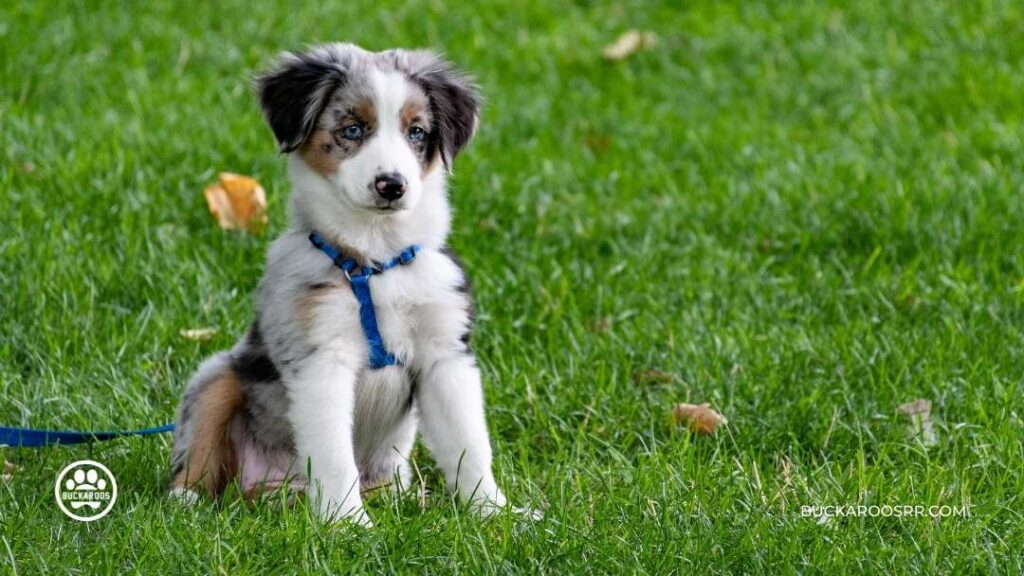
Homework before potty training your dog
Every dog is different and so it’s important to understand your dog’s needs before forcing or teaching any command to them. There are three main things you need to know before potty training your dog.
- Understand your dog’s routine
The first step in potty training any animal is to understand their routine. Keep track of their eat, sleep, and play cycles. Dogs usually like to pass after eating or rigorous play. So doing your homework will help a lot. When you know your pup’s cycle you can predict their passing out time.
- When you step out
Always have a leash on them when you take your furry friend for a walk. Keeping them attached to you signals them to be on their best behavior. When they feel the need to pass out they will signal you. Give them a command until they do their thing. Always praise them after they finish their business.
- Signals and Commands
You need to keep your signals and commands in place. Do not confuse your pup with different signals, instead teach them things one by one. Keep your potty training signals/ commands easy to understand. A simple “Go” or “Yes” works. Don’t use the same commands for other activities, or it might confuse your pup. Watch our video on puppy training here.
Proven tips to potty train puppies
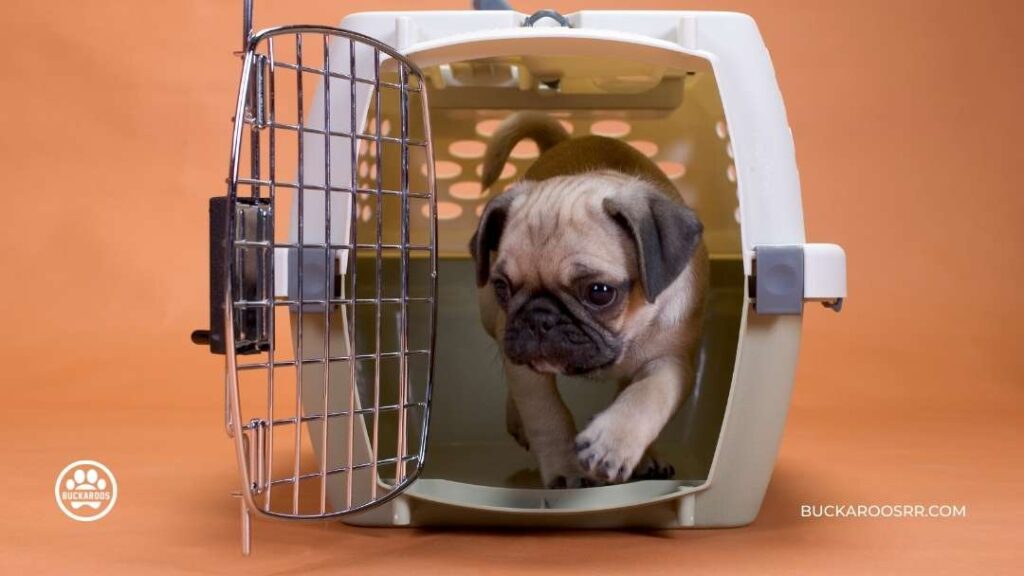
Crate training
Owners often refuse to crate-train their puppies as they don’t want them to feel trapped. But sometimes it’s the best way to discipline your dog. Crates act as safe dens for dogs. Dogs tend to keep their living areas clean. The crate should be big enough so the dog can pass out in one space and keep the other area clean. If they start showcasing behaviors like whining and scratching, take them out of the crate. Watch our video on crate training your dog here.
Creating a potty partition in the crate can also work for small dogs.
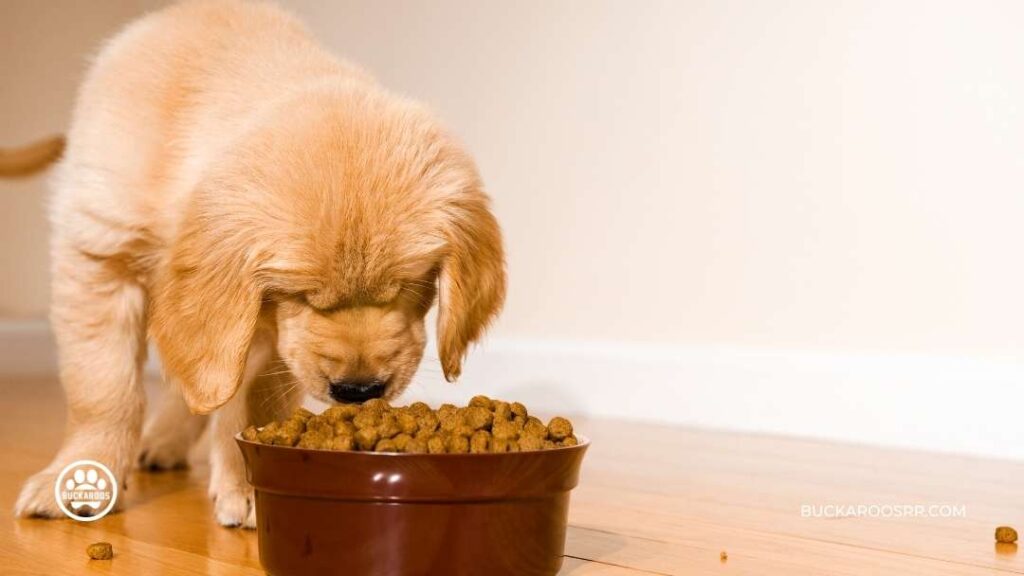
Sticking to a feeding schedule
Puppies can’t process things like humans. They need to be taught right and wrong behavior. Start by keeping their feeding times similar throughout the week. Puppies have a small bladder so they usually pass after 15-20 minutes of eating. You can take them out after eating every day at the same time. This will create a habit that the puppies can follow. Once they pass, praise them for the right behavior.
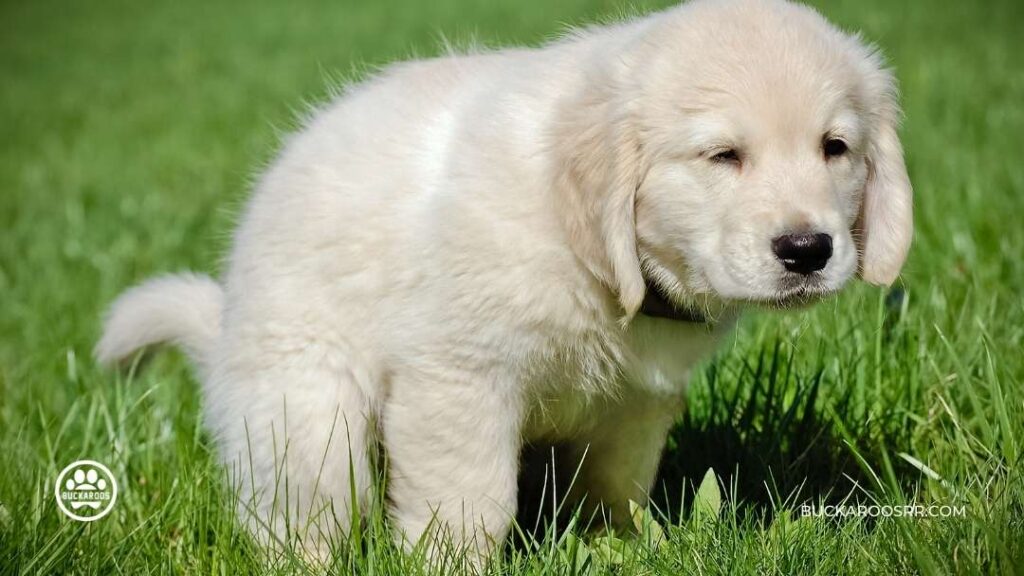
Same spot every day
Keep things simple for your furry friend. Introduce them to a comfortable spot to their liking and take them to the same spot to pass out every day. This won’t confuse your small pup! Start using praise words when they show the right behavior. This will positively reinforce them. Even if your pup isn’t ready to pass on the spot, don’t move until they complete their business. This needs to be continued until they completely learn the behavior.
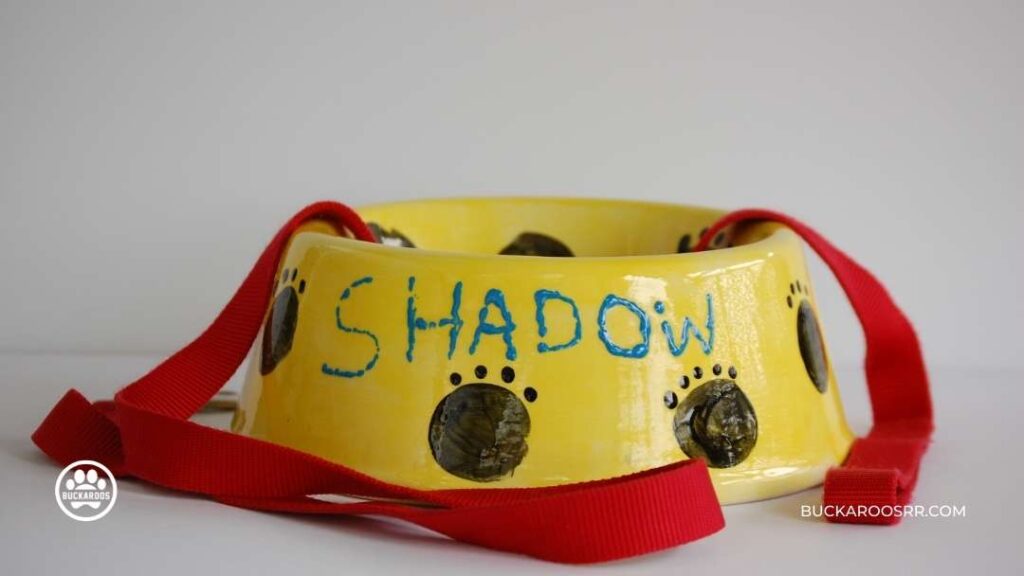
Remove water before bed
If you keep your dog indoors then removing water before bedtime can be effective. Puppies generally need 2 cups of water on average every day. Keeping this number in mind can help you control their water intake. You can remove their food and water bowl approximately 2-3 hours before bedtime to avoid potty accidents at night.
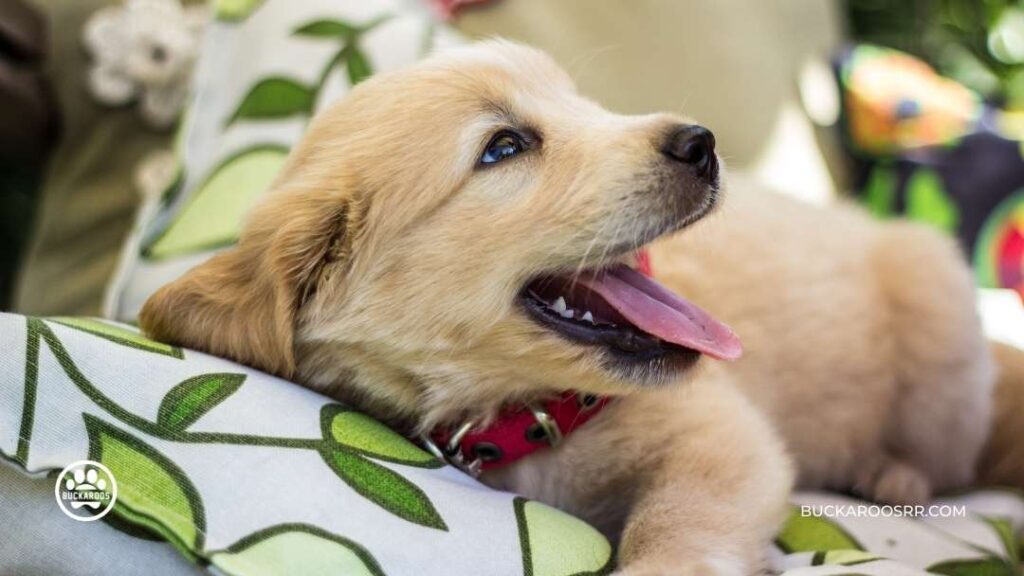
Praise and positive reinforcement
One thing that always works for puppies is praises and rewards that are consistent throughout their training session. Do not forget their favorite treatoes!!
Using punishment can have negative effects on your pup’s behavior. Training should help them become good listeners instead of fearers. So use positive words and rewards to potty train your dog.
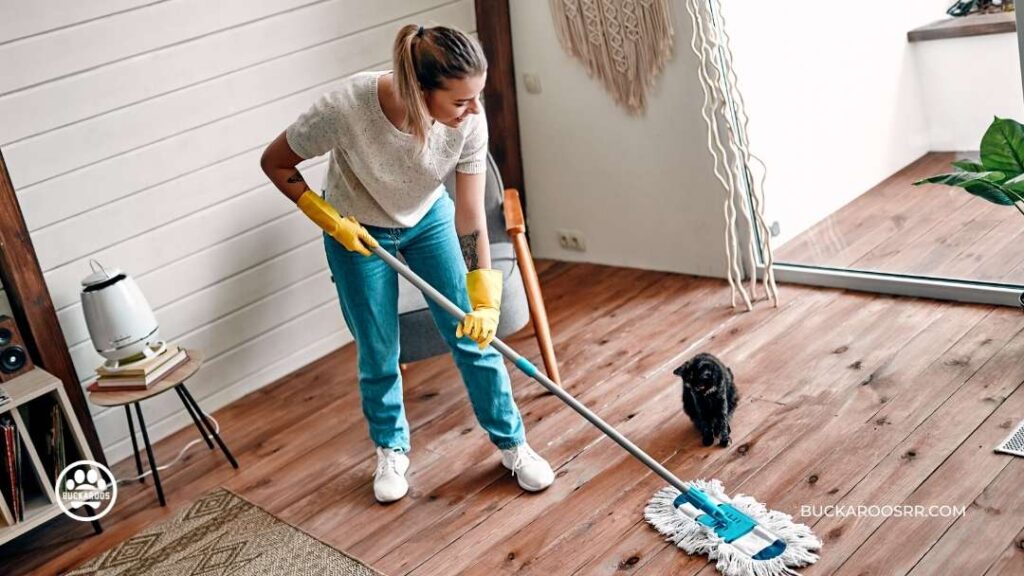
Clean potty accidents thoroughly
Sometimes your furry friend won’t understand your commands and can accidentally do things that they aren’t meant to do. Instead of getting angry, it’s better to provide them with a safe space. Leaving your buddy indoors for long hours can lead to accidents, so be aware of your faults as well.
After such acts, clean their potty accidents thoroughly to avoid them from happening again. Puppies usually guide themselves through the use of smell. If they smell their scent indoors, then accidents can happen again.
If you work for long hours and aren’t able to take your pet outside after every 2-3 hours, you can leave your pups at our boarding facilities all over Oklahoma, or ask your neighbors, or friends to take them out.
Looking after solutions should be our top priority when teaching something new to a puppy.
Conclusion
Potty training can’t be achieved overnight. Puppies aren’t smart like humans so giving them time is important. Training a dog completely depends on their breed, age, or the type of environment they reside in. So let’s not force behaviors instead train them with gratitude in our hearts. Using treats and reward signals can train your pup to listen and act appropriately.
Happy training!!





